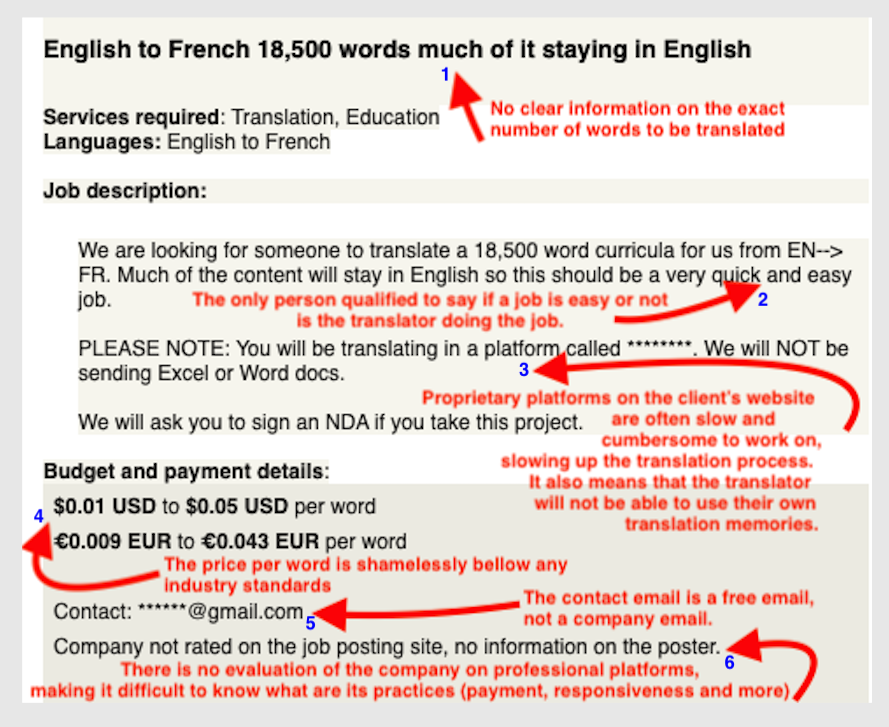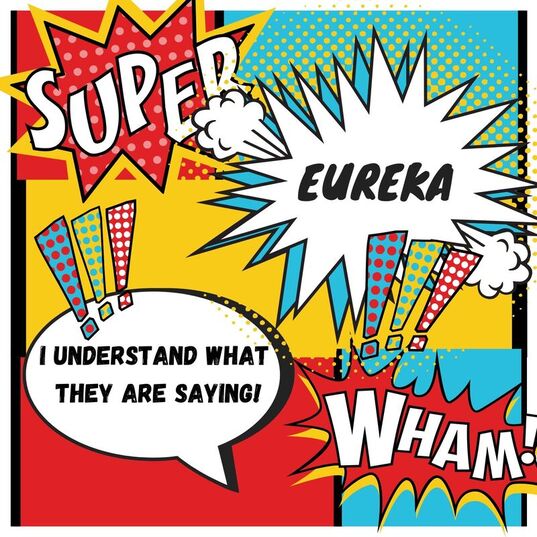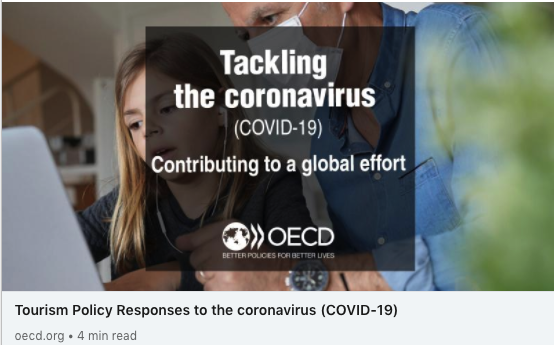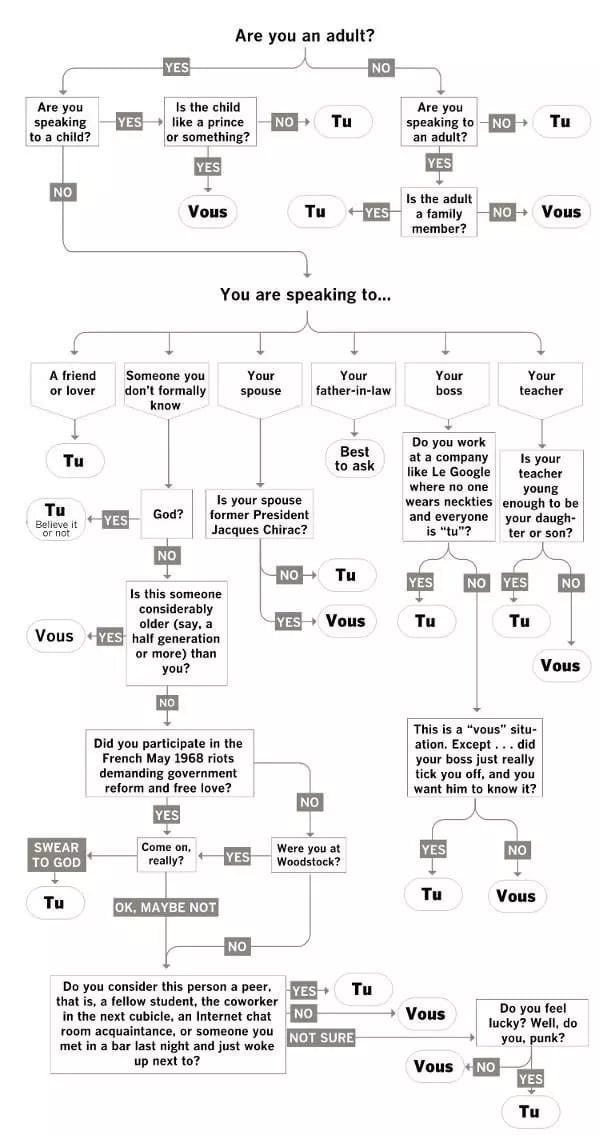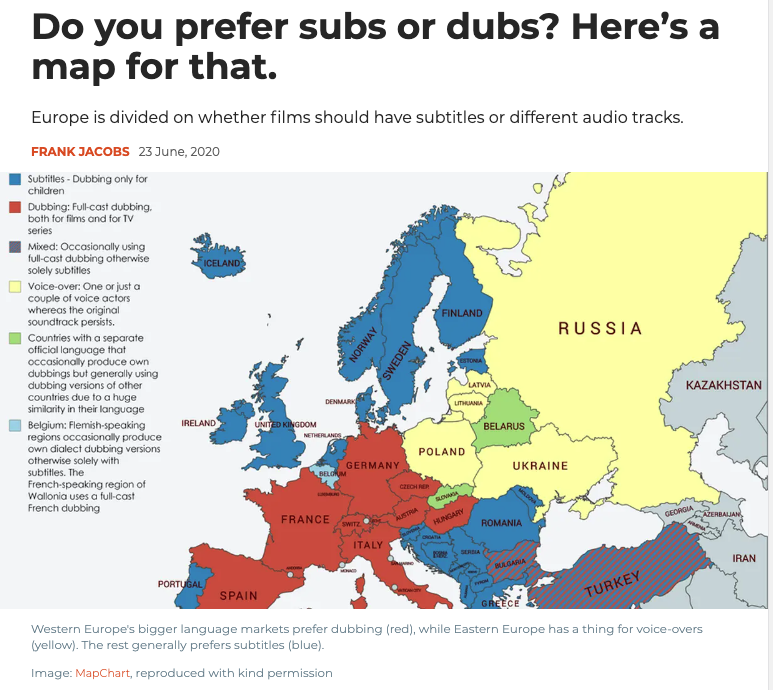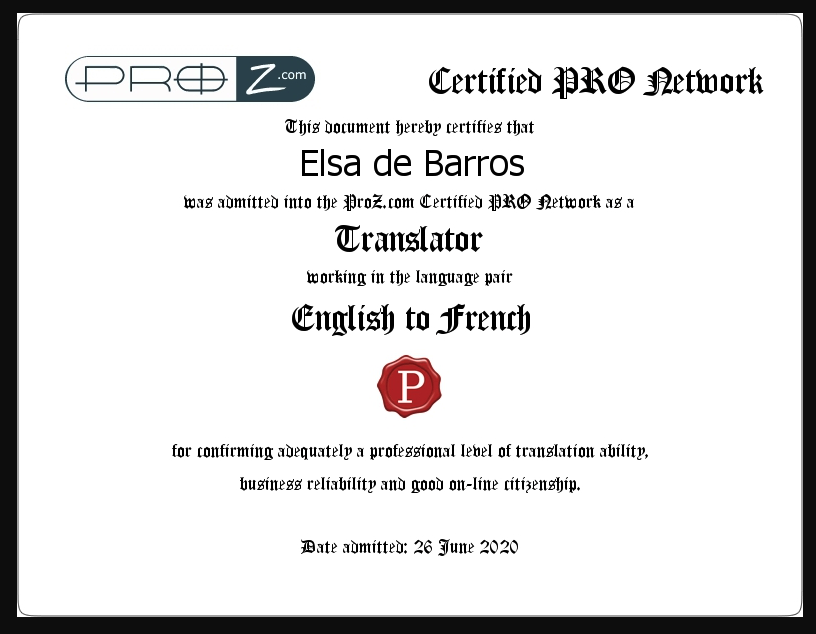|
Question: where do you read?
Things I've (re)learned about reading huge volumes to study - by contrast to reading equally huge volumes for pleasure: Don't read in bed. You'll end up snoozing faster than it takes to say "I might need another cushion." Don't read in the garden. The cute birds are way too distracting and then there are those green things swaying slowly so your mind goes to the sea breeze and that nap you took on the hammock. Don't read on the sofa. See "don't read in bed" above. Sofas have special sleeping proprieties that should be marketed as such by the medical community. Don't read at the kitchen table. Despite the extra cushions, the chairs are cruel. Don't read in the kitchen, period. It's way too close to the fridge. And your husband's secret not-so-secret goodies reserve. Don't read on the toilet. You won't be able to stand on your numb legs after that eternity sitting in the same position. Don't read in the same room your kid is watching youtube tutorials on whatever or discussing the value of Pokemon cards while needing your urgent input. Don't read in the car. Green is not a good color on your face. And nobody likes to clean vomit. Don't read without your reading glasses. Or your noise-reducing headphones. Don't read if it's 3h for diner time and your kid really needs to know what's for diner. In 3h. Or 2h. Or 1h. Or every minute in between. Where then? A café. A restaurant. Somewhere someone can bring your fuel of choice without too much interruption. And you can't fall asleep in public. A train. The only moving vehicle that'll not make your stomach churn. And you can get coffee. A library. Somewhere someone else can ask for silence on your behalf. A room without a bed or sofa but with lock and key. And coffee. Lots of coffee. So you don't fall asleep.
0 Comments
I've long hated "lite" versions of books for younger people, and Reader's Digest-style abridged versions for those with no time to read a text but who still want to be able to give their two cents about it in a social situation.
I also know that every translation is a kind of rewriting, with the added effect of "generational retranslation" (the "classics" are retranslated regularly to adapt the translation to the times), but we expect to read something not precisely like the original, it's a translation after all (if you never thought about this before, sorry to burst your bubble; when you read a translated text, you read two - or more- authors voices, the original author and their translator, both styles, era, and biases carried into the translated text). However, this discussion regarding the rewriting of Roald Dahl is (pun intended) another story. This is literature, not functional text, like an ad or a user's guide, or an information leaflet. This is an original, the source, being changed, creating in fact a new text, a new source. I get the intention and the need for being inclusive in texts written now, but why change the original written in another time and another social context? Are we going to 'virtue wash' all of Literature now? Why not let the biases show and add context instead? Let the reader do the work of switching codes? Use the biases of the original as an opportunity to discuss the evolution of society, "that was like that then, how do you feel it should be if it was written now?" in a classroom or at home? Why not let the kid reading it come up with their own version? Last week my son (12) was given a grammar exercise from a very old book. In it, was the word 'neger' (Dutch for 'niger'). Clearly, the school should invest in something more (d/r)ecent, it's not literature though, it's a functional text, it could be changed. An interesting thing happened: the whole class went up in arms, they said it was not right and that they would speak with the teacher the next day. Which they did. It opened an important conversation about language and responsible choice of words, and how society changed. Sure, it would have been more productive for the purpose of a grammar exercise to not have that word there, but it was and they dealt with it. There are luckily plenty of new stories, new authors, new fiction worlds, and fictional characters every one of us individually can relate to, there is no need to rewrite a book, especially if it's not done by the author himself. Such a misguided decision however based on good intentions, treating the reader as incapable of critical thinking. No wonder as a teacher I get so many teens in my classes unable to reason on their own and asking for everything pre-chewed all the time. Ever wondered how a burnout feels?
Like this. A now empty, crashed, and burned-to-the-bone car, that used to carry a lot, worked perfectly for a long time, was useful, had its place among the other cars, and was even new at some point, but for some reason malfunctioned or was misused, and ended up burning, alone, in the dark. If you feel work makes you so hot under the collar that you might burn, please stop before reaching the point of combustion. If it's too late, and you are now cleaning up the burned bits, trust professionals (preferentially from the medical field) to guide you to come back to life, healed. Know you are not alone. Statistics say that in 2022, 89% of workers worldwide have experienced some form of burnout, while not everyone looked for help or treatment, just plowing ahead for many reasons. Know that it can be coupled with other issues, whether in your current private life, your health, or past traumas. Know that it can happen even if you love your job or your career or your employer. Know that if you keep working while burning, you will make mistakes that might have serious consequences, for someone, you included. Know that if ignored, it can turn into a deep depression, much more difficult to recover from. And when you do, expect to be changed by it all. Only you can tell how much. Are there moments giving you butterflies in your stomach?
I mean, not the kind you get from falling in love or from getting in a "spin-and-spew" ride at an attraction park. Think not food gone bad, but instead, job gone great. That's how I feel today. I'm teaching at a secondary school again. I've been a language professional for over 30 years. Teaching French and Portuguese AND translating from and into both, right from the start. The ink on my University degree had not yet dried, I was already travelling the world, a "digital nomad" at a time when "digital" meant only something your fingers could touch. I taught at secondary schools, among many other places, but it was long ago. Teaching adults, professionals, on short-term missions was easier to combine with nomadic life. The thing is, I have grown roots now. It happens to be in The Netherlands, a country I could not speak the language 13 years ago. Yes, this master of 3.5 Romance languages (0.5 is Italian - I understand it very well but look like a deranged gecko when trying to speak it) and proudly self-taught English speaker (the British Council attested recently I'm very good at it, so I'm entitled to some boasting), could not even make out single words in a sentence in Dutch. All bzzzzingrrrrggga to me. When someone asks me what love is, I tend to say it's learning Dutch when you come from Romance languages. It took me the last 10 years to learn Dutch, but now I feel confident(ish) I’ll understand when teenage students will throw at me their best defiant attitude in their mother tongue. I thought it was time to give a go at teaching here, so I answered a few ads from agencies. I was warmly welcomed by the specialized pro team at Maandag, and here I am, today, signed contract in hand for a part-time teaching position at Novalis College, a modern and engaging secondary school in Eindhoven (it's a Waldorf school, lovely people, wood all around, they even have a blacksmith workshop and their restaurant is organic!). Do you know schools have the same smell everywhere? It's something that gets you in the stomach (yes, again, my stomach has a life of its own), it's a smell that has a taste and physically feels like a warm blanket. Except for the chalk, missing now that all is digital, I think it's made of books, crumpled paper, sweat, hormones, laughs, food, coffee, fear, hope, rustling clothes, silence, bell rings, eagerness, ink, wooden tables, disinfectant, and love. Such a combo, once you experience it, you'll never forget. The best of it all is that it will allow me to continue with my copywriting and translation work. My soul needs all its pieces to feel whole, and my brain needs variety to keep firing properly. I'm home. At last. Wondering what these weird dots and strange word are about?
You know enough hashtag#French to see that it's a bit unusual, even if you have seen these in ads or articles lately. It's about being hashtag#inclusive. About giving visibility to all hashtag#genders in all texts. French, like other languages of the Romance family, is hashtag#binary gender based. It has a hashtag#masculine and a hashtag#feminine form for nouns, pronouns, articles, adjectives, and so on, and the masculine form is the predominant one, the “neutral" form. Society is opening to hashtag#genderequality, hashtag#genderfluidity, and other hashtag#genderidentification, and it's vital that written communication finds ways to reflect it. Changing a whole mindset and hashtag#grammar system is no easy task. The French-speaking world is actively reflecting on the best way to include everyone in public texts, and so far there are 9 possible hashtag#writingtechniques. Not all of them are perceived the same way, and they all can be applied in different types of texts. To learn more and be able to better advise my clients on the subject, I had the privilege and pleasure to participate in the hashtag#workshop "Du bon usage de l’écriture inclusive" with the knowledgeable and didactic Anne Vervier, otherwise known for her "language clair" advocacy. It was enlightening and fun! Your ready-made list to get aspiring freelancers successfully started without spending too much of your own precious time writing all this down. You are welcome. You might have a little sister. Or brother. Or a best friend. Or that annoying yet endearing kid from your neighbourhood who comes to you for tips when you are in the middle of something. Like that elusive spark of an idea you have been working on for hours for one of your clients. Fear no more. I have your back.
My sister came to me a few days ago asking for help setting up her business. She has a clear idea of what she is going to do, she did the research on viability, she knows her stuff, she has a good network of contacts already, she loves what she is going to do. In terms of what, it's a no-brainer. Her problem is the how. How does she get things started? Where to begin? It's an overwhelming question for many starting freelancers. It can even put some off starting altogether. She has no background in business or marketing, she does not have a University degree, she is a mum with 2 kids and a gigantic talent in her area. Luckily, she also has a big sister who did it already. 3 times. Failed twice. And is now running her own successful freelance business. So I put together a list in order of priorities of my 14 best practical bits of advice for her, for you and for anyone you think might need it. Plus one, from a big sister's heart. 1 Register the legal form of your company and decide on a name Register wherever is necessary (tax office, chamber of commerce, etc…) in your country of residency, some require that you register to get a VAT number, some not. It's fundamental you are up to date with all the legal requirements before starting to take on work and issuing invoices to avoid any kind of bad surprises, aka tax audit asking you a lot more money than you are prepared to pay. In any case, it means you need to decide on a name. 2 Get an accountant specialized in working with freelancers Unless you are a wizard of accounting, of course! In any case, it should be someone who understands the ins and outs of your profession, or at least who deals a lot with freelancers. Someone you will rely on heavily to keep you on the legal line regarding all financial aspects of your business. With luck, they will be knowledgeable enough to advise you on good or bad business choices. 3 Find a work (jobs, clients, invoicing) management system good for you It's about a work management system that will work for you, whether it’s online or offline, whether it only manages tasks or also manages invoices, you decide what suits you best. A good old excel or a cloud-based system (like LSP Expert.com, Google Calendar and notes Trello, etc…), a notebook, a combination of several tools, the most important is that you keep an easy track of your tasks, job orders, clients, hours worked, invoices, logins and passwords for all the sites you’ll be accessing, and so on. 4 Create an email account for your company and register your own domain A free one with Gmail and similar will do, but if you can, register your own domain: it’s usually not expensive and gives a much more polished impression. Of course, usernames like “pusscat69” or “HankTheHunk” are perfectly fine if your freelance business is of a more sexual nature, otherwise, avoid it. As for “jane123” or “translator567”, it might say that if you cannot be bothered to be professional on such detail for yourself, why would you be better at working for your clients? 5 Create your own website or ask a professional to do it for you There are several good free websites builder options to start, all of which can be upgraded to paying options for more services (SquareSpace, Weebly, Wix, Wordpress, to quote the most known). If you have the budget, though, invest in having a professional creating it for you. Think of it as your virtual office. If your freelance activity does not entail having an actual office to receive visitors, then your website will be your only point of entry to your "office". It has to reflect who you are, what you do and how you do it. 6 Create/update your LinkedIn profile and grow your network Add information about your new company. It’s the perfect occasion to rework your profile description, maybe even to connect with professionals or companies you are interested in getting in touch with. Think not only in connecting with colleagues, people of your own professional sector, but also with potential clients. 7 Create your company's profile(s) on social media platforms suited to it Create a Facebook page or Instagram profile dedicated to your company. Depending on the sector of activity, one or the other works best, or both. Think about other social media platforms that would suit your business better or as well (podcasts, YouTube, TikTok...). Maybe a podcast will suit you better than Facebook, maybe your potential clients are TikTokers, you know what is the best fit for you, just subscribe in your company's name. 8 Open a bank account dedicated for your business Unless in your country it’s really easy to keep things separate, it’s usually better for accounting purposes to have separate accounts. It will avoid at least wasting your accountant's time. And knowing how much you pay them, it's always worth the investment. 9 Get professional liability insurance Depending on your country, it might be mandatory. It’s always a good idea in any case. You are not planning on making any mistake on that big order or that your visitor break a leg coming in your office, but s**** happen. Be covered. 10 Get professional photos that will showcase your business Get professional photos of yourself taken. Good photos of yourself to use on social media profiles, on your website, etc… are always a good way to showcase your business and cause a greater impression on your target audience. You put your face where your work and their money is. 11 Get some writing for social media or SEO or Marketing training No need to go too in-depth, if you are not working in that sector of activity, but if you have a social media presence, you must understand the basics of how to make it work in your favour. 12 Create posts with the right aesthetics Create posts with good pictures, and aesthetics that work for your business. There are a number of resources available for free (that you can always upgrade to paying) like Canva.com to create posts, banners, flyers, and much more, or Unsplash.com for good quality photos, among dozens of equally good sites. 13 Create a logo for your brand and define your brand voice If your brand is clear to you, it might be good to have a professional working with you on a logo. This might also be a good moment to reflect on your brand as a whole, to think about your brand voice. Yes, you'll have to Google that one. Go. 14 Network, network, network Network. To build up your business, you need a solid network of colleagues and clients. There is nothing like a good reputation and being part of a community, of several groups of interest. Go to Social Networking opportunities, Conventions, Symposiums, Conferences, Associations dinners, Meetups. Subscribe to discussion groups on Facebook, interact on LinkedIn, Instagram and so on. Don’t think of it as time wasted on social media, think of it as getting to know your business world, sharing who you are, who your brand is, and help whenever you can more than you ask for help. The return you’ll get will amaze you: you’ll be part of a community you’ll be able to rely on every day. Being freelance does not mean that you’ll be alone all the time. It just means you’ll be free to be alone when you want. Take care of yourself, your mental and physical health. And the last, my plus 1 on those 14, probably the most forgotten and nonetheless the most important I gave to my little sister, so I'm offering it to you as well: take care of your health. Sleep, get fresh air, eat well, take time off regularly, don’t forget about your social life. You’ll get so obsessed with your business, your baby, that you’ll forget about your other basic needs. Don’t. It’s what’ll give you the strength to face failures (guaranteed to happen) and pick yourself up to go on and get the wins (also guaranteed to happen). The beginning of a freelance activity is both exhilarating and terrifying. I know, I've been there at least 3 times. The first 2 times, I failed, for several reasons, but mostly because I had no clue about a few points on this list I've now put together. I'll come back to my reasons for failure in another article. Although this is just very basic advice many will find obvious, it's not so for absolute beginners with no business or marketing background and for those who just have an idea, lots of energy and big dreams. Now, you can go back to work knowing you can always pull off your sleeve my little list of 14 +1 basic tips for beginners freelance. Stay tuned for more. I'm thinking of 10 +1 tips to be less socially awkward in networking events when we are all allowed to socialize again. It may or may not involve drinks. What do you think? Dear client, you want to see what might raise 🚩 red flags 🚩 for a translation job?
Dear colleague beginner translator, you don't know yet what are the red flags? I'm here to help. 🙋♀️ Here is a perfect example of what not to publish and what not to answer. It concentrates 6 red flags in one ad. Handy for us to analyse. Have a look at the picture and the comments in red. There are other red (or orange) flags, of course, such as: ⚠️ 7 - an unrealistic deadline for the volume (this one does not mention it) ⚠️ 8 - a payment term above industry standard for the country you are working in (this one mentioned 2 days payment term, which is unusually fast, and although not uncommon, still rare enough to raise some concerns as it may be being used as bait for desperate translators) ⚠️ 9 - a proprietary invoicing system not allowing for the freelance professional to issue their own invoice ⚠️. 10 - an entirely automated project management system, not allowing for human interaction with the client Are you familiar with these red flags? Do you know more to add to the list? Do you disagree with any? Let me know in the comments. And stay safe and alert out there! #translation #professionalawareness #translator #freelanceworld #freelancingrisks #riskmanagement After 18 months of language training, today was the last lesson with one of my students. A bittersweet feeling, as my task is complete, the student is happy, but I will miss her. I always feel a bit of a loss when a training is over. I learn from my students, about them, their cultures, their ideas, but also about my own language knowledge, as there are always questions asked by someone that leads me to go look why some aspect of the language is the way it is. In this instance, my student needed to work on her language skills as well as cultural awareness to not only feel integrated into the French society, as a newcomer and a mother of young children but also find a job compatible with her high skills in a competitive market. She needed to acquire fluency and confidence and cultural awareness. She is now off to meet recruiters and blow them away with her wonderful French skills coloured with a delightful barely-there foreign accent. As for me, I'll be concentrating on the other 19 individual students from different countries that I have the pleasure and privilege to teach tailor-made contents in either French or Portuguese right now. Did I mention how much I love teaching languages? #teaching #Language #BlendedLearning #Face2Face #OnlineTraining #CulturalAwareness Something happened yesterday. Well, 2 something, a great and a not so great. Guess which one kept me awake? Which made me clench my jaws so tight I pulled a muscle in my neck and could not open my mouth to speak or eat until now (that might have been a bonus, though)? You guessed right. But why is it that even when I receive wonderful news - which included signing with a new client to whom I was warmly recommended by another one and a subsequent new interesting long term assignment - I could not focus on it? Instead, I reread a dissatisfied client's email, about a #translation reviewed internally and sent back to me as being "full of mistakes". No matter that the "mistakes" were 1 typo and 7 preferential changes in style and tone (which could have been prevented if they had provided me with proper instructions). No matter that I addressed their issue immediately. No matter that such a situation only happened to me once before. No matter. I still spent my evening doubting myself, awakening the old demon-friend Mr #ImpostorSyndrom and his cohort of self-pity, tiredness and heartbreak heading the convoy. And I keep wondering: why is it that finding the #RightBalance between what we know is our #selfworth and the sad marginal incident is so damn hard? Have you experienced this as well? My white sneakers need cleaning.
I'm quite fond of them, I use them a lot, I want to keep them as white as possible without damaging them. But how? I thought of looking it up on Youtube. There are How-to videos for everything these days. You don't need to be a specialist anymore. Type it, see it, do it. I'm a great believer of doing stuff myself, I can paint the walls of my house, make my garden flourish, bake bread, check the oil of my car, bandage a wound, and even connect small electrical cables with a domino if needed. What I don't know, I Google. Then I thought "and if it fails? My favourite sneakers will be ruined." So I did the only thing one does when something is really important: I asked an expert. I called my mum. You see, some of the useful skills in my life are a direct result of years of doing things alongside my dad or my mum. The one I cherish above all is the will to try. I'm by no means fearless, no, as I am often afraid before trying something new, but I do it anyway. And I do it again, I do it enough to perfect it. I work on it. They taught me that. To do my best. To be proud of what I do. So, while thinking of the best way to clean my white sneakers, and after calling my mum, I thought of all the other instances when calling an expert who perfected their craft with love, time, and talent is the best way to ensure that something important is well done. Oh, and by the way, my mum said that using a soft brush and tepid water with some dishwashing soap, and let it dry under the sunshine.ry under the sunshine. I think I might just do that, let the sun do it's magic, on me and my sneakers. Do you remember a "eureka!" moment in your life where you realized you could understand without thinking too much what people around you were saying in another language? A language you did not speak fluently? A language you had been learning recently? Or trying to learn with great difficulty? I do. I was living in India, around 2000, and one day while in my kitchen doing the dishes, the news on tv in the other room, an English speaking channel, I realised I understood what they said. All of it. I thought that there had been some change of channels, I jumped in the other room, checked and well... yes! I could understand everything they were saying. I felt a sense of jubilation. I even made a little giggly sound. I had been trying to learn English for years without much success, I could not really understand beyond a few short sentences, certainly not live news and much less express myself with ease. But being fully immersed and listening to, reading and speaking the language every day, putting my self-conscious tendency aside, that was the key. At 30 years old and being in a diplomatic position where I was expected to give speeches in English, it was about time. What about you? #English #ForeignLanguages #LanguageTeacher #LinguisticAdventures #LearnANewLanguage I’m often asked if I really work with 5 languages, if I reeeeeeaaly can speak them. I thought to address this in a short video. I mention my profile on it, it’s actually my professional page on Proz, my LinkedIn profile and my own website, all containing the relevant information. Enjoy :-) #French #LearnFrench #Français #ApprendreLeFrançais
#ParlerFrançais #ConversationInFrench #CoursDeFrançais This study from the OECD on the impact of COVID-19 on the tourism industry mentions "scenarios indicate that the potential shock could range between a 60-80% decline in the international tourism economy in 2020"
It seems clear that it will take hard work and creative minds to "restore traveller confidence and rethink the tourism sector for the future." As a translator, copywriter and voiceover specialized in this sector, I am ready and willing to fight alongside my clients. Let's talk about your needs, I'll lend you my words and my voice to achieve your goals. #tourism #travels #hotels #RediscoverTheWorld #copywriting #translator #TranslatingTheWorld #BoardOfTourism #holidays #citytrips #SafeTravels #NewNormal #NewWorld #VoiceOver #French #Français #Portuguese #Português #litranslator #SafeJourney #Podcast #BlogPost #Newsletter #TravellingAgain https://www.oecd.org/coronavirus/policy-responses/tourism-policy-responses-to-the-coronavirus-covid-19-6466aa20/ You know a bit of French but you are still confused about when to use TU or VOUS?
Fret no more, here is the ultimate chart to help you navigate through this perilous bit of grammar. Or you could also give me a call and book your next lesson. Courtesy of the LA Times. https://www.latimes.com/opinion/op-ed/la-og-bastile-vous-tu-20140711-htmlstory.html 7/1/2020 Did you know that subtitles, dubbing and voiceover are not only a tool for the entertainment industry?Read NowWho did not spend some of this "home isolation" period enjoying the bottomless offer of Netflix, Amazon, Hulu, HBO, Apple TV, Disney or any other entertainment providers?
In which language(s) have you done it? Did you turn the subtitles on? Spotted some funny blunders? Maybe in your country is voiceover more common? Even when only one gender has to speak for all. Or all things considered, you are more at ease with your favourite series dubbed with the voices of the actors you know since childhood? You probably can't even recognize the real voice of this or that actor if you listen in the original version. Even if sometimes the off timing of the lip-sync is...off-putting. But did you know that subtitles, dubbing and voiceover are not only a tool for the entertainment industry? They are powerful tools to add to your institutional videos, to your corporate products, to your video manuals. I'd be happy to help you choose the more adequate solution for your cultural context. And to find for you the professional who will deliver your subtitles without blunders, your voiceover without stutter and you dubbing perfectly timed. #subtitling #dubbing #voiceover #translation Check the complete article on this here: https://bigthink.com/strange-maps/dubbing-map Happy note today: I am now a member of Proz Certified PRO network of translators.
Why is this relevant, considering I was already a qualified and experienced translator, with a relevant university degree and a few additional professional training under my belt? Because it certifies my proficiency in a source language, English, that I did not study as part of my university degree. I graduated in Romance languages, namely French and Portuguese, both mother tongues to me. It happens that I fell in love with the English language and all the great literature published in it, so I learned it mostly on my own, took a few language courses, traveled and lived in countries speaking it, practiced a lot, read even more and ended up taking the IELTS Academic for English a few years ago to officially certify my skill. Until now, the only proof of my expertise in translating from English were my long professional experience and the consistent clients’ satisfaction with my services. Now I can proudly display this certificate. #language #ielts #english #translator #txl8 #LifeLongLearning #languagecourses #CertifiedProfessional #Proz Contrary to what we are told and have been told countless times, the key to success might not only to be deeply specialized but to also be flexible and adapt to the unexpected and uncertain, trusting an array of skills picked up from all sort of experiences.
The future might belong to the age old “Renaissance (wo)man”. What do you think of this? Have you seen it happening around you or to you? Harvard lecturer: 'No specific skill will get you ahead in the future'—but this 'way of thinking' will’ “Breadth of perspective and the ability to connect the proverbial dots (the domain of generalists) is likely to be as important as depth of expertise and the ability to generate dots (the domain of specialists).“ https://www-cnbc-com.cdn.ampproject.org/c/s/www.cnbc.com/amp/2020/06/15/harvard-yale-researcher-future-success-is-not-a-specific-skill-its-a-type-of-thinking.html #multitalented #multiskills #flexibility #Generalist #specialism #BeOpen #txl8 You need a very specific service, you are looking for a professional with certain skills, so you place an ad.
But you get no answers, wrong answers and even mocking reactions. Your problem? You failed to identify clearly your need (or your client’s need) or wrongly worded your ad. Next time, consult with a professional in the subject before publishing. It will save time and get the results you are looking for. This ad was received today, from a major company, they provided all sorts of details and conditions for this job but the only way they’ll get the right service will be to answer a string of questions from professionals and dilettantes alike and will end up wasting a lot of precious time to actually explain what they need precisely. Cultural and linguistic misunderstandings make for some awkward situations, sometimes innocently funny, sometimes unfortunate. The latest high profile language blunder came, according to the Financial Times, from Irena Andrassy, Croatia's permanent representative in Brussels, who appears to have said, at the final meeting of EU ambassadors ahead of Britain's exit: “thank you, goodbye, and good riddance”. She says she thought the expression meant "good luck". Like a vast majority of highly educated and travelled European civil servants, she speaks English in her professional dealings. She does not use an interpreter to express herself in English in public. She most likely writes herself all her emails and reports in English, no need for a translator. However, she is not native** of it and mistakes on idioms and culturally marked expressions are bound to happen. It's not an issue within the private sphere, including publications on social media in one's own name, meeting peers, at the supermarket, restaurant or any other functional situation. An international company might choose English* as their internal communication language. Emails and memos and phone calls are all in English - labelled then as "broken", "globish", "dunglish" or any other term indicating a type of non-native English widely used by a group of people - the kind I use when I publish something on social media in fact. And it's fine. The objective is to get a functional message across, not to impress anyone or have those words recorded for posterity during a Historical meeting. It is, however, a serious deal when dealing with official guidelines, Health and Safety leaflets or users' manuals for machinery and so on. And a big - potentially money-losing - deal when issuing official statements, publishing marketing material, launching a product, or displaying a website. Some companies might use one of their employees - "Hans from Accounting spent a year in London, he can write this". Other might just put their trust in friends - the niece of someone's neighbour who is "quite good with languages" and is "really happy to translate this for exposure". And some even just use Google Translate, or any other online translation tool, and make do with the (still) unreliable output. The savvier ones look for professional copywriters or translators, but hire the cheapest they can find, whether through a proper agency or a We-do-it-Fast-and-Cheap business. They say they do not have the budget to have their material done by the right - native and trained - professional. The thing is, how much more will it cost them to miss on a business deal with a potential client who felt unimpressed by their lack of cultural sensitivity? What are the costs of an injured employee who followed some badly-translated tool's instructions? How much would it hurt to butcher the launch of a beautiful product the company spent months producing, and had a team of marketing experts working on a campaign in their original language, with a slogan sent to be "just translated" instead of properly adapted, transcreated, recreated by a professional? And by properly I mean that said professional was given a reasonable deadline to do their work, a complete briefing and a fair payment. Only time will say how the now-famous wishes of Ms Andrassy will be remembered but it's a good example of how assumptions of one's knowledge of a language can lead to rather unpleasant consequences. Contrary to the widespread belief, knowing one or two languages at a certain level does not make you a specialist in translating or writing, nor knowing how to play "Fur Elise" makes you a concert pianist or cutting your bangs in your bathroom makes you a professional hairdresser. We've all been there, it's not pretty. Do yourself a favour and ask a pro next time you want your words to be effective in getting you that business deal you've worked so hard for. The fact is, not everybody can English* but a native, qualified, trained and experienced translator or copywriter does. * Change the language to any that applies to you. For me, it's French and Portuguese, of which I am native. English is only one of my source languages. ** More on the notion of native in another article. A reference to the unfortunate historical last words can be found here: https://www.independent.co.uk/news/uk/politics/brexit-eu-uk-final-message-translation-andrassy-a9316491.html
Great news for newcomers in the translating world and located in The Netherlands: workshop coming up September 7 in Endhoven! 👩🏼💻
It’s called “Speeddating met ervaren vertalers” and I’ll be one of 9 translators waiting for your questions.👥⏱ Don’t miss it, check the link here under, enrollment is open! https://www.jouwvertaler.nl/…/speeddating-met-ervaren-vert…/ 💫💻🔐📝 I'm coming back from a book sales. I'd usually be carrying a huge load of books, but not this time.
Why? Because I felt sad and disappointed. And furious, yes. More than 70% of the books I was interested in did not mention the translator's name. The author, of course, the editor, the publisher, the graphic designer, the guy who did the introduction, the photographer and so forth. Many carried "bestseller" stamps. Some even had exerts of reception critics in the translated language by known critics or other authors, praising the book's reception in the country. Still no mention of the translator. Sure, there were children books and travel/culture books in the mixt, some would say it does not matter. But it does. How do they think the book could be such a huge success if it had not been translated with talent? Is the translator not an essential part of the good reception of the book? I know that a good translation is one where the text flows so flawlessly and effortlessly that no one can say there was a translator, but still...it infuriates me. So please, if you are a translator, fight for your name to be included. If you are a client, ask why the translator is not named. And if you are in the position to publish a book, make it a habit to #namethetranslator Language attrition is a well-known problem for anyone who lived in another country than their own for some time. What I do on a daily base to avoid losing either my French or my Portuguese (a feeling I know well and fear), besides trying to keep up with my favourite authors when something new is published, is to read news and popular articles, even sometimes silly ones for they are a goldmine for new terms and slang etc..., watch movies and tv series when possible, listen to the radio, to podcasts. Some days it will be more French others more Portuguese. As a language teacher, I speak both on a daily base, but often a polished version of it, the one acceptable in the classroom. As a translator I am able to work on all registers but it takes the effort above described for me to be able to provide for the right term when it's something recent in the culture. Some days are a true challenge when one language takes over all the others. Then, the only solution is a nice phone call to a dear friend or to family, to just chat and get the groove back. www.theguardian.com/commentisfree/2018/apr/03/first-language-voice-mother-tongue-attrition-brexit?CMP=Share_AndroidApp_Copy_to_clipboard Losing your first language? Here’s how to rediscover your voice Monika Schmid Expats are often shaky in their mother tongue. But fear not: the fight in the brain known as language attrition can be stopped Monika Schmid is a professor in linguistics at the University of EssexTue 3 Apr 2018 12.28 BSTLast modified on Wed 4 Apr 2018 10.39 BST ‘In a foreign context, expats like me feel like a fish out of water or, perhaps more accurately, like a sea lion.’ Photograph: Andy Hall for the Observer When a former PhD candidate recently asked me to write a reference for her, I found myself facing an unexpected dilemma. She is a wonderful person and a brilliant scientist whom any employer should consider themselves lucky to recruit, and I’m delighted to provide a reference saying just that. The problem lies in the fact that the job is a lectureship for teaching German. I’m German myself, as is she, and so I felt I should write the letter in German. I couldn’t do it. First off, I no longer trust my German spelling. This is partly because the spelling rules have changed in the 20 years since I left, partly because I spoke and wrote Dutch for a long time, where many words sound quite similar but are spelled differently, and partly because my knowledge has simply eroded. What’s more, words elude me and I’m often no longer sure if they mean exactly what I think they mean. My grammar is restructuring itself along the lines of English, which in German translates to simpler, less sophisticated sentences. None of this, I felt, would shine a good light on the candidate.I’m not alone in experiencing this. Having spent any length of time – and this can be as little as a few months – in a foreign context, expats like me tend to feel like fish out of water or, perhaps more accurately, like sea lions out of water: we can survive, yes, but movements that otherwise are natural, fluid and efficient become a huge effort. We flap, we fumble, we wobble along, feeling and looking slightly ridiculous. In linguistic terms, this means that we um and ah a lot more. We pause more often. Our sentences go wrong in the middle, and we have to backtrack. Our vocabulary becomes less sophisticated, and our grammar less complex. And there are more subtle effects, to do with the different ways in which politeness and social interaction differ across languages. What is considered appropriate and polite varies hugely between countries For example, English has only one pronoun – “you” – to address others. Many other languages make the distinction between a familiar and a formal or polite pronoun: for example, French tu and vous, or Spanish tu and usted. There are no clear, straightforward rules telling you in which context to use a formal and in which a familiar pronoun, and what is considered appropriate and polite varies hugely between countries. For example, in the Netherlands I became used to addressing the Rector Magnificus of my university with the informal pronoun and by his first name. In Germany, one was expected to call him Your Magnificence (I’m not making this up). Using a familiar pronoun, let alone a first name, would have been unthinkable. Not only have conventions changed over the past 20 years, but I feel that I’ve entirely lost my sense of what’s appropriate in any given situation. Many of these phenomena of what is called language attrition are quite similar to the changes in language use often found in the very early stages of dementia – although, of course, the underlying cognitive processes are completely different. Language attrition is not a neurological condition, but comes about because two languages are fighting it out in one brain. Like people living with dementia, those experiencing language attrition are faced with the stark reality that we assess and judge people based on how well and how confidently they use language. When linguistic performance becomes compromised, intelligence, capability, and overall cognitive functioning are underestimated. Unlike people living with dementia, people with language attrition may take comfort in the fact that these symptoms are unlikely to persist or get much worse, and that reimmersion in the native language will probably make them disappear within a few weeks. But for 3 million EU citizens living in the UK and 1 million Britons on the continent, many of whom may now be contemplating a return to their home country because of Brexit, language attrition could be a real problem. A badly spelled or clumsily worded letter of application, a fumbling and hesitant performance at interview, or – horror of horrors – an inappropriate use of a pronoun or a first name, or the omission of a honorific title, may ruin any chance to prove yourself in the job. Such errors are, of course, completely unrelated to how competent you are to carry out a particular function – but that will not provide much comfort if language attrition has cost you the job of your dreams. AdvertisementSo what should you do if you are thinking of going back on the job market in the country of your birth? Here are some tips that may come in handy: • Always have all documents you submit checked by a fully competent native speaker who is currently living there. • Think yourself into the language, starting as early as possible. Play out the conversations you may expect to have in the job interview. Consider not only specialised key terms but also the ways in which you will interact with the members of the panel. Do this out loud. • If possible, look up who the panel members are and what their titles are. If you are unsure, ask a fully competent native speaker what the proper way is to address them. Practise this. • If you are unsure about certain technical terms or specialised vocabulary, make a cheat sheet for yourself, and don’t feel embarrassed about referring to it during the interview. • If you can, arrange a mock interview with friends or family who share your native language. Some of this may seem over the top – but it could make the difference between you feeling like a graceful sea creature in its element or a clumsy lump of lard wobbling along on dry land. This article was originally published on The Conversation Support to Literary Translation Projects 2018
STATUS DEADLINE CALL REFERENCE OPEN 23/05/2018 - 12:00 (CET, Brussels time)EACEA/13/2018 NB: other linguistic versions of the call notice will be available soon 2018 call for proposals EACEA 13/2018 for 'Support to Literary translations projects' Call notice Date of publication: 27/03/2018 Deadline for submitting: 23/05/2018 at 12:00 noon (midday Brussels time) https://eacea.ec.europa.eu/creative-europe/funding/support-literary-translation-projects-2018_en |
Details
Categories
All
Archives
June 2023
|
 RSS Feed
RSS Feed





